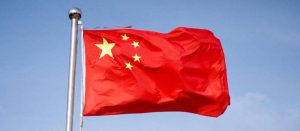In recent months, Germany has taken a prominent role in urging the European Union (EU) to engage in meaningful trade talks with China. This call comes at a time of increasing global economic interdependence and geopolitical tension. However, Germany’s push for enhanced trade relations with China is accompanied by sharp criticism of Beijing’s ongoing exports to Russia, particularly amidst the ongoing Russia-Ukraine conflict. This dual stance reflects the complex and often conflicting priorities of international trade and foreign policy.
Germany’s Position on EU-China Trade Relations

Economic Imperatives
Germany, as the EU’s largest economy, has significant stakes in maintaining robust trade relations with China. The two countries are major trading partners, with Germany being China’s biggest trade partner in Europe. This relationship is crucial for Germany’s export-driven economy, which relies heavily on the Chinese market for automobiles, machinery, and chemical products.
Strategic Concerns
Germany’s push for EU-China trade talks is also driven by strategic concerns. As global economic dynamics shift, Germany and the broader EU aim to secure a stable and predictable relationship with China. This includes addressing issues such as market access, intellectual property rights, and investment protections. Germany envisions a comprehensive trade agreement that would provide a framework for these concerns, fostering a more balanced and mutually beneficial economic partnership.
Criticism of China’s Exports to Russia
Context of the Russia-Ukraine Conflict
Germany’s criticism of China’s exports to Russia must be understood in the context of the ongoing Russia-Ukraine conflict. Since the conflict escalated in 2022, the EU has imposed a series of sanctions on Russia, aiming to isolate its economy and weaken its capacity to sustain military operations. Germany, along with other EU nations, has been a vocal supporter of these sanctions.
Beijing’s Actions
Despite international sanctions, China has continued to engage in trade with Russia, providing it with essential goods and services. This includes technology, machinery, and energy supplies, which are critical to Russia’s economic stability. Germany views these actions as undermining the effectiveness of the sanctions and indirectly supporting Russia’s military efforts.
Diplomatic Repercussions
Germany’s criticism of China’s exports to Russia has diplomatic implications. It reflects a growing frustration within the EU regarding China’s geopolitical stance and its perceived ambivalence towards international norms. This criticism is also aimed at pressuring China to reconsider its trade policies with Russia, aligning more closely with the EU’s position on the conflict.
Analysis of Germany’s Dual Stance
Balancing Economic and Political Interests
Germany’s dual stance on trade with China and criticism of Beijing’s exports to Russia highlights the inherent tension between economic and political interests. On one hand, Germany seeks to enhance economic ties with China to benefit its economy. On the other hand, it must uphold its commitments to international sanctions and geopolitical stability.
Impact on EU Policy
Germany’s position significantly influences EU policy. As a leading member state, Germany’s calls for EU-China trade talks are likely to push the EU towards negotiating a comprehensive trade agreement with China. Simultaneously, Germany’s criticism of China’s trade with Russia could lead to increased diplomatic pressure on Beijing to align its policies with international sanctions.
Long-term Implications
The long-term implications of Germany’s dual stance are complex. Successful trade talks with China could strengthen the EU’s economic position globally. However, continued criticism and diplomatic tension over China’s exports to Russia could strain EU-China relations. This balancing act will require careful navigation by German and EU policymakers to achieve their economic and geopolitical goals.
Comparative Analysis
Trade Relations
| Aspect | EU-China Trade Relations | China-Russia Trade Relations |
|---|---|---|
| Key Players | EU, China | China, Russia |
| Primary Interests | Economic growth, market access, | Energy supplies, technology exchange |
| investment protections | ||
| Recent Developments | Calls for comprehensive trade talks | Continued trade amidst international |
| sanctions | ||
| Challenges | Market access, intellectual property | Sanctions, geopolitical tensions |
| rights, trade imbalances | ||
| Strategic Goals | Strengthen economic ties, secure | Economic stability, strategic partnership |
| investment protections |
Diplomatic Stances
| Aspect | Germany’s Position on EU-China Trade | Germany’s Criticism of China’s Exports to Russia |
|---|---|---|
| Economic Interests | Enhancing trade, securing market | Supporting international sanctions |
| access | ||
| Political Interests | Stability in EU-China relations | Geopolitical stability, adherence to sanctions |
| Recent Actions | Urging EU-China trade talks | Public criticism of Chinese exports to Russia |
| Diplomatic Implications | Potential for improved economic | Increased diplomatic pressure on China |
| partnership | ||
| Long-term Goals | Comprehensive trade agreement | Alignment of China’s trade policies with EU |
| sanctions |
Conclusion
Germany’s call for EU-China trade talks, coupled with its criticism of Beijing’s exports to Russia, underscores the complex interplay of economic and geopolitical considerations in international relations. Germany aims to strengthen its economic ties with China through a comprehensive trade agreement while upholding its commitment to international sanctions against Russia. This dual stance reflects the broader challenges faced by the EU in balancing its economic interests with its geopolitical responsibilities.
As the situation evolves, Germany’s approach will likely continue to shape EU policy towards China and Russia. The success of these efforts will depend on the ability of German and EU policymakers to navigate the intricate landscape of global trade and diplomacy, ensuring that their economic and political objectives are effectively aligned.












